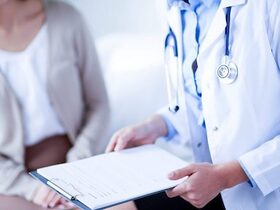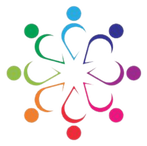Local Support Services in the U.S.
We highly recommend connecting with a local ALS nonprofit organization that serves your area. These organizations can answer your questions, provide individualized support, connect you to resources, and much more—free of charge.
ALS Clinics DirectoryAttending an ALS clinic can improve your quality of life and help you live longer. Search our comprehensive directory of clinics in the U.S.
|
Virtual Support and Education
- The ALS Association offers Medicare and insurance navigation services, a Virtual Home Modification and Safety Assessment program, online educational resources, and more.
- Compassionate Care ALS (CCALS) offers an innovative and holistic range of in-person and virtual services that are tailored to meet each family’s unique needs.
- I AM ALS offers advocacy opportunities, virtual support groups, and ongoing emotional support and logistical guidance for families impacted by ALS.
- The Les Turner ALS Foundation features educational guides, decision tools, webinars with experts, and more on its website.
- Roon is an app that features short videos from leading experts that answer common questions about ALS.
- Synapticure is a telemedicine healthcare company that provides personalized care and guidance for people living with ALS via video, phone, and email.
Veterans Benefits
If you are a U.S. military veteran who has been diagnosed with ALS, you should qualify for service-connected benefits through the VA. The Paralyzed Veterans of America (PVA) is a nonprofit organization that can help veterans and families understand and apply for benefits.
Financial and Material Assistance
- ALS Ride for Life provides financial assistance for respite care, a one-time grant for legal fees, end-of-life guidance, and more.
- HARK provides assistance with equipment, travel, household expenses, and more to help alleviate the financial burdens faced by families battling ALS.
- The LiveLikeLou Foundation has volunteers throughout the U.S. and Canada who can help families affected by ALS with tasks in and around the home.
- Project Main St provides direct financial assistance to low-income and middle-income individuals and families affected by ALS.
- Team Gleason offers grants that help pay for innovative technology and equipment for people living with ALS.
|
Sign up for our free newsletter to stay up-to-date on new content, equipment, ALS news, resources, and more.
|
ALS/MND Organizations Around the World
Some countries use the term Motor Neuron Disease (MND) instead of ALS.
- On the International Alliance of ALS/MND Associations website, you can learn about ALS and search for organizations around the world.
- The ALS Society of Canada is Canada’s leading ALS support organization.
The Motor Neurone Disease Association (MNDA) supports people living with or affected by MND in England, Wales, and Northern Ireland.
Research and Treatment
- ALS ONE partners with the Healey Center for ALS, UMass Medical School, ALS TDI, and Compassionate Care ALS to advance research and support families.
- The ALS Therapy Development Institute, a nonprofit biotech focused 100% on ALS research, conducts research, hosts online educational events, and more.
- ALSUntangled is a trusted website that reviews and shares information on alternative/off-label ALS treatment options like supplements.
- ClinicalTrials.gov is a government website that helps you locate privately and publicly funded ALS clinical trials.
- Everything ALS hosts virtual bi-monthly ALS Experts Talks and uses technological innovations and data science to develop digital biomarkers.
- The Healy ALS Platform Trial accelerates new ALS therapies by testing multiple treatments at once, which reduces the cost of research, decreases trial time, and increases patient participation.
- NEALS is an academic research consortium and resource for the ALS community that hosts educational webinars, an annual conference, and more.
- The National ALS Registry is a database that collects information from volunteers living with ALS to help scientists work toward a cure.
- Project ALS identifies and funds promising ALS research and encourages collaboration among researchers from multiple disciplines.
- Target ALS fosters collaboration between academia and the pharma and biotech industry and serves as a networking hub for the worldwide research community.
Health Care, Benefits, and Insurance
- Social Security Disability Benefits (SSDI) explains disability benefits and how to apply.
- Medicare is the government health-care program for seniors and disabled people. Most people living with ALS qualify for Medicare, regardless of age.
- The ALS Medicare Resource Line provides free individualized case management assistance for people living with ALS, their family members, and caregivers. Medicare experts can help you navigate eligibility and enrollment over the phone.
- Medicaid is the national health insurance program primarily for low-income families and individuals that provides free or low-cost coverage.
- Long-term Care through Medicaid offers state-run programs that can help pay for long-term, non-medical care for some individuals. Eligibility guidelines are different than Medicaid’s health insurance program.
- HealthCare.gov is the website for the Affordable Care Act that helps you search for and compare private health insurance plans in your area.
- COBRA is the federal program that allows you (and your family) to remain on your same insurance plan for up to 18 months after employment ends.
- FMLA (Family and Medical Leave Act) is the federal policy that provides certain employees with up to 12 weeks of unpaid, job-protected leave per year.
- Medicare Rights Center is a nonprofit customer service organization dedicated to helping seniors and people with disabilities navigate the Medicare system.
- A.C.C.E.S.S. Program is a free service for people living with ALS and other chronic conditions that can help you navigate Medicare and other social and economic challenges.
Caregiver Support and ResourcesYou can find self-care suggestions, support services, recommended resources, and more on our page for ALS caregivers.
|
Support for Children and Youth
- Hope Loves Company (HLC) provides support to children and young adults affected by ALS, including in-person camps across the United States.
- The ALS Society of Canada has printable PDF booklets that can guide parents, children, teens, and educators when a family member is diagnosed with ALS.
- The ALS Association offers youth education books and guides in addition to guides for parents and educators working with children impacted by ALS.
- Inheritance of Hope (IoH) is a national charity that offers hope, support, and community through online, on-site, and ongoing offerings for young families facing the loss of a parent.
Additional Resources
- ALS Family of Faith provides Christ-centered love and support at no cost to individuals living with ALS, families, and caregivers.
- ALS Forums is an online, volunteer-moderated forum and support group for people affected by ALS.
- ALS News Today is a news and information website that posts daily about the latest ALS science and research news.
- Her ALS Story provides a network where young women diagnosed with ALS can connect, advocate, educate, raise awareness, and collaborate.
- The Muscular Dystrophy Association (MDA) supports ALS clinics, provides educational materials, and more.
- The National Institutes of Health (NIH) website has trusted facts about ALS from the nation’s medical research agency.
- Patients Like Me is a health information-sharing website where people living with ALS can share real-world experiences, ask questions, and learn from others.
Is there something we missed?
Please email us if there are other resources our community might find helpful. Thank you!





